I’ve been purchasing the A-Line Lead weights from ACCU-Lites and Model Train stuff.com but they are all out of stock. I love their lead weights and I’m so used to them. I’ve looked for sililar lead weights on the web and found only tire weights. Has anyone ever ran into any lead weights similar to the ones from A-Line?
The press on tire weights are the same thing A-line sells, just a whole lot cheaper. A package of weights runs 6-7 dollars for 6 small strips.The same tire weights bought in a box of 50 strips from a tire supply works out to be about .75 cents a strip of 12 weights for 1/4 oz.weights ( that was the last time I bought some ),1/2 oz. weights were 1.50 a strip of 12. If you use a lot of them it’s a lot cheaper, or get some club members to go in together and split a box of each. Check the phone book for tire wholesale shops near you. Otto
Oh really! How come the tire ones are allot cheaper? Thanks for the additional info.
I like to use pennies. Just glue them in with a little caulking or whatever cheap glue you have on hand. Cheapest weights out there by far!
Tire weights are usually bought by the box, not strips at a time. Hence money savings.
Most tire weights you buy at the local retail store are now ‘lead free’ - and are much larger than the ones A-Line sells. The A-Line ones are ‘lead’ and are quite a bit smaller. I have looked around ‘on-line’ and have not found any of the pure lead weights.
The A-Line weights figure out to about 31 cents/weight(both 1/4 & 1/2 oz sizes). The nice thing about the ‘pure lead’ A-Line weights are that they are smaller than the weights I picked up at Harbor Freight. Here is an example:
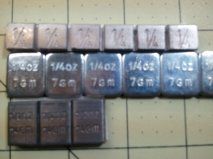
The middle strip of weights are the ‘non-lead’ ones I picked up at Harbor Freight. Top & bottom are two different sizes of A-Line 1/4 oz weights. For something like a box car, the larger Harbor Freight weights will be fine. The upper 1/4 oz weights from A-Line are perfect for fitting low in the discharge bays on covered hoppers.
Your best price was about 6 cents each for the 1/4 oz, and 12 cents each for the 1/2 oz weights. I stopped by the local Harbor Freight and they had 1/4 oz weights for 17 cents each, and 1/2 oz weights for 21 cents each after I did the math. If you are getting real lead weights, where do you purchase them from - Your pricing is great!
Jim
If you’re a “frugal” guy lie me, you buy lead fishing weights (bullet shape) in various weights (at Walmart), then “monger” them with a hammer to enable them to sit flat. I use one of those inexpensive electronic food scales to do my weight tuning, then cut a flattened fishing weight with a chisel and hammer to get incremental smaller amounts, as needed. Now that Jim tells me there are non-lead weights at my local Harbor Freight, I may also combine them with my “proven” method, to save on the “mongering” aspect! One thing I may have already seen, is a move by WalMart to substitute steel fishing weights for their lead ones, as I see less of the lead type each time I buy there. Maybe it’s an EPA thing- but a good fisherman would be more aware if this than I would. Cedarwoodron
That’s what I use as well. I usually glue them with white school glue.
Enjoy
Paul
Did not see it mentioned, but JC Whitney offers a range .25 oz weights in various package quantities. We buy them at the shop and re-package them in 12 packs at a price that is attractive. All have PSA backing.
And if you’re really cheap, like me, you get used wheel balancing weights at a tire shop for free, then use a propane torch to melt them and recast them as custom-size weights for rolling stock or locos.
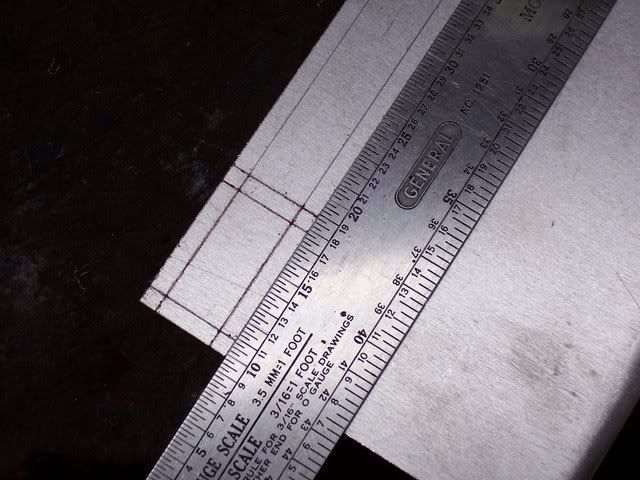
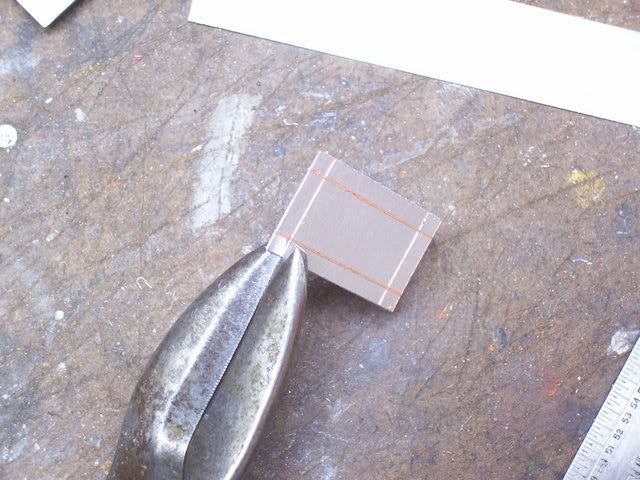
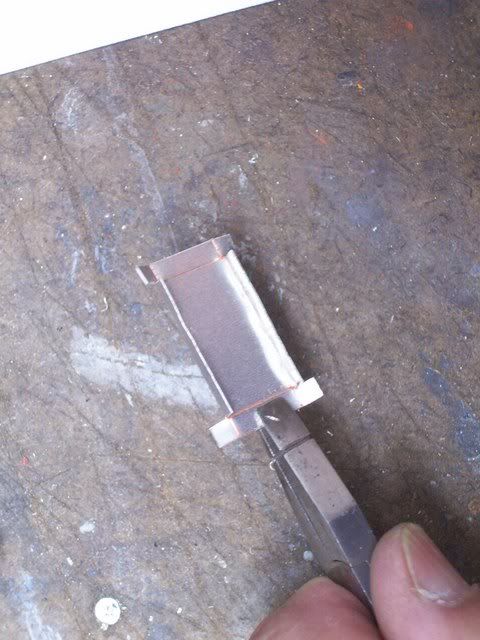
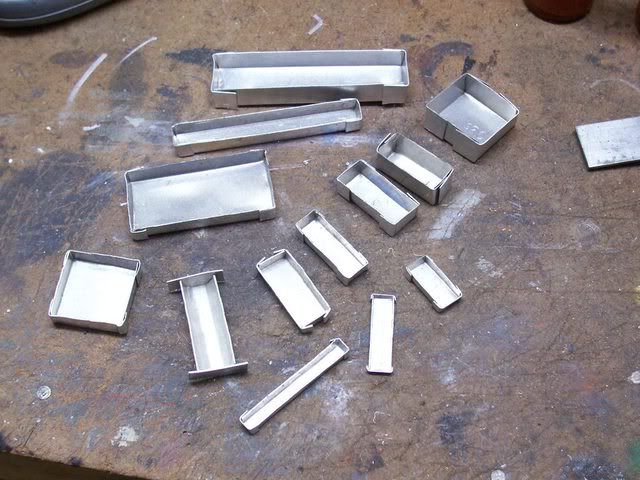
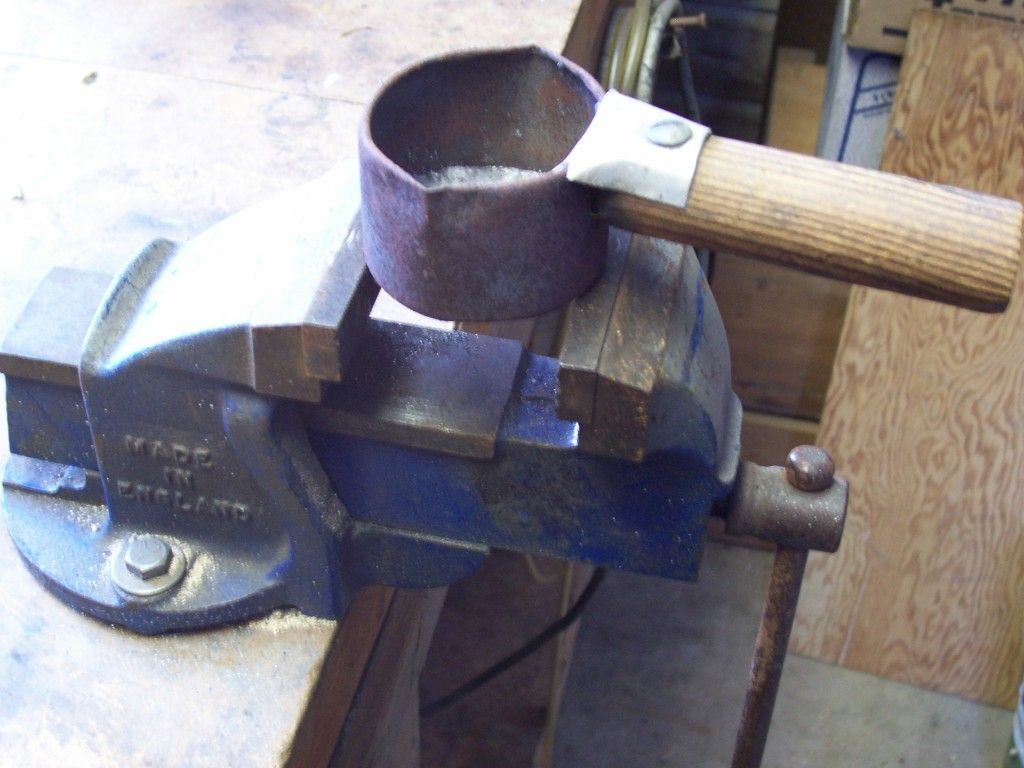
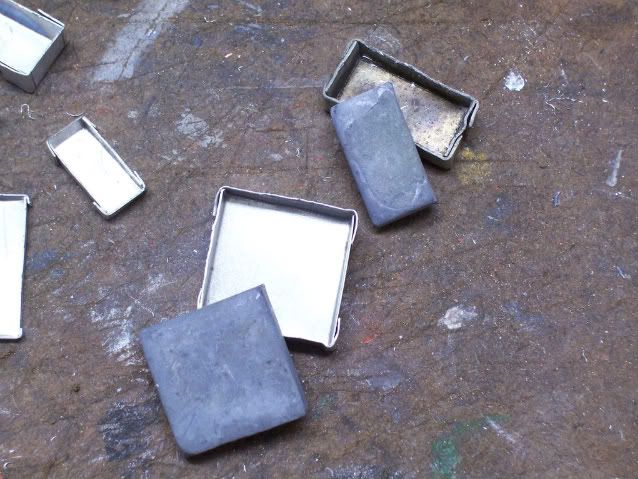
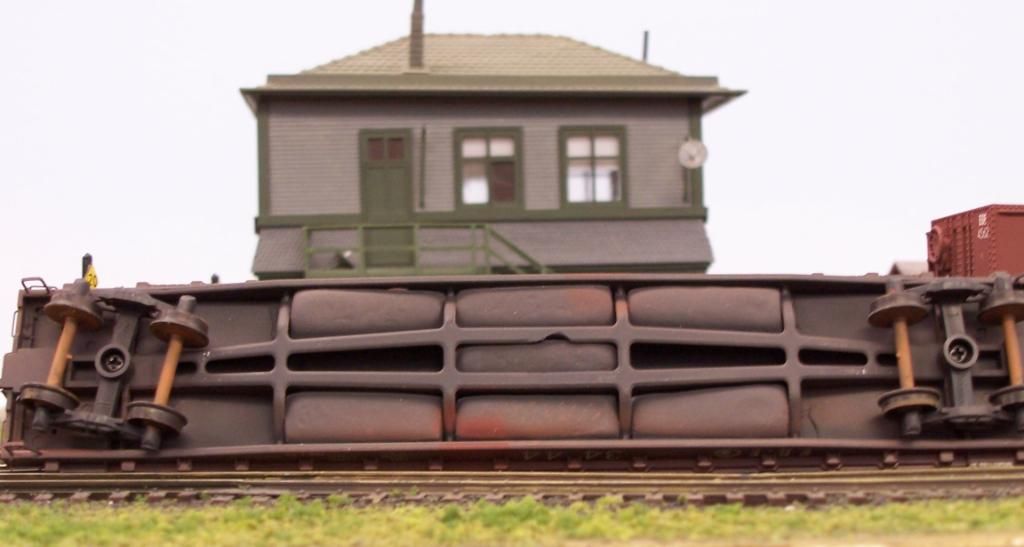
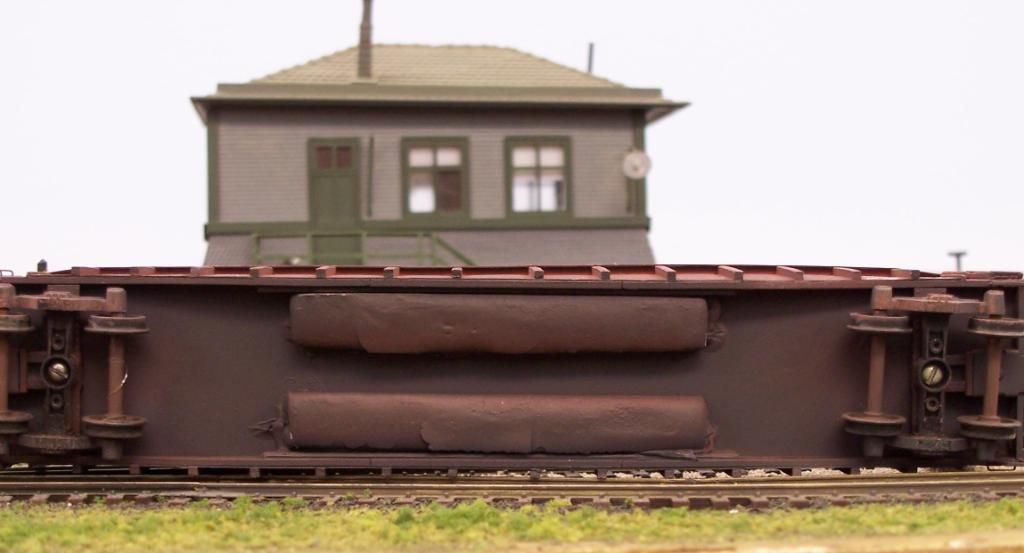

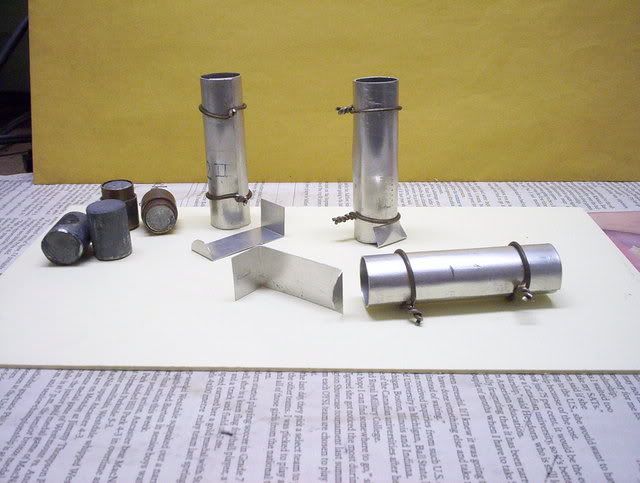
[IMG]http://i23.photobucket.com/albums/b399/doctorwayne/Athea
I purchased a sheet of lead 1/16" thick lead a couple of years ago and I still have most of it left after weighting numerous cars and engines. The advantage to the sheet is that it is easily cut with tin snips into whatever size/shape is needed. I glue multiple layers together with gel CA. It is easy to make custom shaped weights without having to melt or pound anything into compliance.
Here is one possible source:
http://www.rotometals.com/product-p/leadsheet4pound.htm
Just in case you need to be reminded, wear gloves!
Dave
I use the sheet lead, too, and used to get it free also, from a small company that made lead castings. A change of ownership made it a bit more expensive. [swg]
I cut it with a utility knife, as there’s almost no deformation, but another way to create multiple layers is to simply fold it, then flatten the fold with pliers or in a vise. Folded accordion-style, you can make it as thick as you need.
Wayne
I wanted to use the lead flashing roofers use to waterproof the valleys, but could not find it locally. I did find the lead flashing that goes over the vent pipes on the roof. Easy to cut to size to fill the awkward spaces underneath my rolling stock. You can see my whole procedure on my blog. http://hobbydr.blogspot.com/2011/06/working-with-weights.html
Don
DoctorWayne,
You’ve done it again! Out of the box thinking and really neat idea. To confirm–the adhesive backing doesn’t present a problem with the torch, (runoff, fumes, etc.)?
Rick Krall
Lead wheel weights will soon be gone. The car companies have stopped using them in 09. Six states have banned the usage with more to follow.
Many of the aftermarket tire chain stores have stopped using them. Some independent tire stores will continue until a proposed EPA ban takes effect.
Alternatives are steel, zinc and a composite of zinc, copper and aluminum know as zama.
I have found that if you make your request while they are installing the new tires you just bought, they will often give you some free.
Most of the weights that I get for free are the clip-on type, as they were what was commonly used. With the increased use of cast wheels, the stick-on type are now more common. While melting lead with a propane torch doesn’t get the lead hot enough to create lead fumes, the weights are sometimes painted (usually silver) or there are stick-on ones in the pot, too. For this reason, I wear a two-stage respirator, the same as what I use when airbrushing. I doubt that fumes from burning paint or foam/adhesive are very healthy to breathe. [swg]
As the lead melts, all of the impurities, including the steel clips, float to the surface and can be lifted out using the tip on an old screwdriver.
The danger in handling lead is not in the handling itself, but in the fact that lead on your hands can be transferred to things that may put lead into your body. I don’t wear gloves when handling it as it’s simply a way in which to contaminate an otherwise good pair of gloves. I do, however, wash my hands thoroughly after handling lead, and don’t smoke, eat, drink, or pick my nose while working with it. I also don’t leave pieces of lead or residue from filing or cutting lead where anything (pets, kids, or unsuspecting people) can come in contact with it. The residue goes into the pot and can be re-melted with the next batch of wheel weights.
At higher temperatures, lead will vapourise and you should definitely not breathe such fumes. In one of the steel mills where I worked, w
I used to use pennies when I was in HO. Now that I’m in N scale, pennies won’t fit, and dimes are too valuable to use ![]()
I very much appreciate you all sharing your experiences with the metal weights.
I use anything and every thing to weight a car down to the NMRA’s recommendations. Lead does seem to be getting more difficult to fine and expensive when you do.